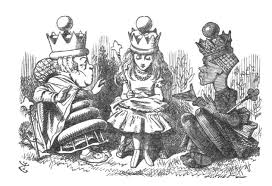Rhythmic elements in reading: From fluency to flow
4 December 2016In recent posts, I’ve described reading fluency as necessary for the experience of reading as a pleasurable and personally rewarding activity. The intrinsic rewards of reading for pleasure can lead individuals into a flow state, in which they describe being swept up or getting lost in a book and losing track of time.
A flow state is highly desirable as it is associated with efficiency, well-being and the development of expertise in many different fields. To understand the flow state phenomenon, Csikszentmihalyi interviewed expert surgeons, rock climbers and chess players who had developed their interest in each activity mainly for its intrinsic rewards, but also spoke about the element of risk involved. It is fascinating to consider that these individuals felt compelled to push hard against the limits of their knowledge and skills and actively challenged themselves in ways that forced them to develop their competence further.
A willingness to confront challenging situations, which involved a degree of risk, enabled these individuals to build systematically upon their knowledge, competency and skills, which in turn led to the development of their expertise. There are obvious dangers in surgery and rock-climbing, which put physical safety at risk, whereas in playing chess, the risk occurs at an abstract level involving the mental discipline and strength of each player. However, in each setting, the surgeons, rock-climbers and chess players experienced what Csikszentmihalyi described as a ‘merging of action and awareness’, which enabled them to focus all of their attention on their engagement with the activity (2000, p.149).
In studying the flow state, Csikszentmihalyi discovered patterns such as (i) move and counter-move in chess and (ii) movement and balance cycles in rock-climbing. These patterns of behaviour were key to achieving a state of relaxed alertness, described by one participant as a ‘self-contained universe’ (2000, p.40). Surprisingly, the similarities between the flow state described in high stress activities such as playing chess and rock-climbing can be compared with the more relaxing activity of reading for pleasure: this is similarly dependent on the coordination and maintenance of multiple skills, but with the addition of fluency of movement across printed words and the deployment of rhythmic sensitivity to the patterns within language.
Just as the natural rhythms of move versus countermove in chess and, movement versus balance involved in climbing induce a state of alert awareness, research into rhythm-based approaches to the teaching of reading has shown that developing pupils’ sensitivity to rhythm has allowed them to enjoy and understand what they read at the level of the phrase, the sentence and the narrative (Long, 2014). This state of pure involvement and learned sensitivity has enabled children to make extraordinary progress in only ten weeks - best of all, they now love to read. Read more.
Csikszentmihalyi: (1975; 2000) Beyond boredom and anxiety: Experiencing flow in work and play, 25th anniversary edition San Francisco, Jossey-Bass Inc.
Long, M. (2014) ‘I can read further and there’s more meaning while I read’: An exploratory study investigating the impact of a rhythm-based music intervention on children’s reading, Research Studies in Music Education, 36 (1) , pp. 107-124

Tags:
Do you have any feedback on this blog post? Email or tweet us.
